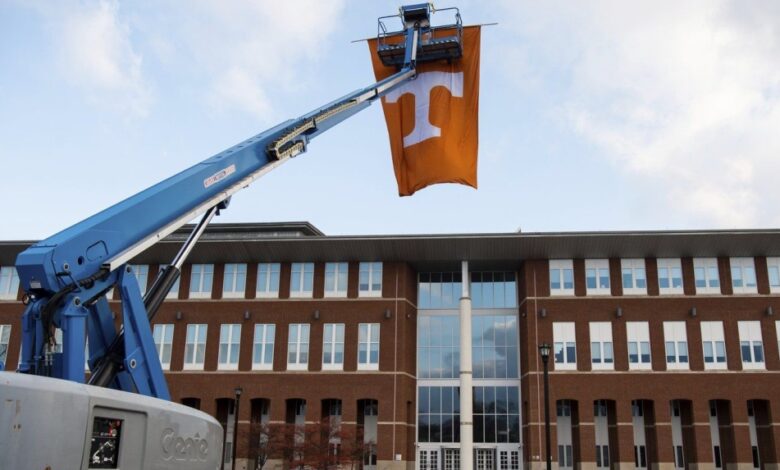NCAA can’t prohibit NIL from being part of recruiting: judge

A federal judge on Friday barred the NCAA from enforcing its rules prohibiting name, image and likeness compensation from being used to entice recruits, granting a request for a preliminary injunction from the states of Tennessee and Virginia and dealing another blow to the association’s ability to govern college sports and more than 500,000 athletes.
The ruling by U.S. District Judge Clifton Corker in the Eastern District of Tennessee undercuts what has been a fundamental principle of the NCAA’s model of amateurism for decades: third parties cannot pay recruits to attend a particular school.
Corker wrote that the NCAA’s stance likely violates antitrust law with Congress so far unwilling to give the association an antitrust exemption. The judge said athletes with a limited window are harmed irreparably by not being able to know their true value before committing to a school.
“The NCAA fails to show how such relief will cause any harm that outweighs the irreparable harm that student-athletes will face in the absence of an injunction,” Corker wrote.
The NCAA said it would review the ruling and will talk with its member schools about possible policy changes. But the NCAA said that turning rules supported by members “upside down” will only make an already chaotic situation worse and lessen protections keeping athletes from being exploited.
“An endless patchwork of state laws and court opinions make clear partnering with Congress is necessary to provide stability for the future of all college athletes,” the NCAA said in its statement on the same day NCAA President Charlie Baker was on Capitol Hill.
The plaintiffs’ arguments in asking for the injunction suggest that since the NCAA lifted its ban on athletes being permitted to cash in on their fame in 2021 recruits are already factoring in NIL opportunities when they choose a school.
Corker noted the NCAA’s contention that allowing so-called NIL collectives — business entities backed by boosters — to strike deals with recruits would eviscerate the difference between college athletics and professional sports.
“The proffered reasons are not persuasive procompetitive rationales,” the judge wrote. “While the NCAA permits student-athletes to profit from their NIL, it fails to show how the timing of when a student-athlete enters such an agreement would destroy the goal of preserving amateurism.”
The attorneys general of Tennessee and Virginia filed a federal lawsuit on Jan. 31 that challenged the NCAA’s NIL rules after it was revealed the University of Tennessee was under investigation by the association for potential infractions.
The states were denied a temporary restraining order by Corker, who said the plaintiffs could not prove that irreparable harm would be done to athletes of the NCAA rules were kept in place. But he made clear that he believed the states were likely to prevail with there case in the long run.
Tennessee Attorney General Jonathan Skrmetti said the injunction ensures athlete rights will be protected from the NCAA’s “illegal NIL-recruitment ban.” He said the bigger fight continues.
“We will litigate this case to the fullest extent necessary to ensure the NCAA’s monopoly cannot continue to harm Tennessee student-athletes,” Skrmetti said. “The NCAA is not above the law, and the law is on our side.”
Virginia Attorney General Jason Miyares called the injunction a significant ruling to protect athletes who deserve the freedom to negotiate and benefit while they help the NCAA and its 1,100 member schools earn millions.
“It’s only fair that they have more freedom over what they earn,” he said. “The NCAA has taken advantage of talented young athletes for too long.”
The decision also is a victory for the University of Tennessee, which is facing an inquiry by the NCAA into possible recruiting violation. University officials declined to comment Friday.
The chancellor of the University of Tennessee revealed Jan. 30 in a scathing letter to the NCAA president that the association was alleging the school violated NIL rules through deals made between athletes and a booster-funded NIL collective that supports Volunteers athletes. Donde Plowman called it “intellectually dishonest” for NCAA staff to pursue infractions cases as if students have no NIL rights.
The NCAA’s authority to regulate compensation for athletes has been under attack from a variety of avenues and its legal woes are growing.
The Tennessee case is one of at least six antitrust lawsuits the NCAA is defending as it also asks for antitrust protections from Congress. A National Labor Relations Board official ruled in early February that members of the Dartmouth men’s basketball team are employees of the school and could vote to form a union, which the players plan to do.




